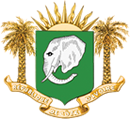Round table
query_builder 17-11-2023
Madam Representative of the Assistant Director-General for the Humanities and Social Sciences
Madam President of the Africa Group, Ambassador, Permanent Delegate of Angola,
H.E. Mr Amadou Opah Thiam ? Ambassador, Permanent Delegate of Mali,
Excellencies, Ladies and Gentlemen Ambassadors,
Distinguished panelists,
Ladies and Gentlemen of Civil Society,
Ladies and Gentlemen,
Distinguished participants
Allow me to begin by expressing my deep gratitude to the Director General, Madame Audrey Azoulay, for her keen interest in the governance of the African continent and her commitment to the fundamental mission of the organization, which is to build international peace through education, science, culture, information and communication.
I would also like to express my sincere thanks to Mrs. Gabriela Ramos, Assistant Director-General for Human and Social Sciences, for the constant support she provides to the Africa Group in the implementation of programs in her field of competence.
I would also like to acknowledge the presence and leadership of the President of the Africa Group, the Ambassador, Permanent Delegate of Angola, H.E. Mrs. Ana Maria de Oliveira.
To H.E. Mr. Amadou Opah Thiam, Ambassador, Permanent Delegate of Mali, I extend my congratulations for having taken the initiative of organizing this high-level meeting to reinforce the culture of peace in our nations.
Finally, allow me to express my infinite gratitude to all the participants from diverse backgrounds, including members of the Permanent Delegations, civil society (local associations and the African diaspora), students, academics, executives, entrepreneurs, researchers, political decision-makers and government representatives.
Ladies and Gentlemen,
Distinguished participants,
Côte d'Ivoire is delighted to be taking part in this Round Table.
I would like to see, through this participation, our country's strong commitment to peace. Our first President of the Republic was a great architect of world peace. Allow me, in this respect, to mention a few aspects of his great legacy in this field, notably the UNESCO-Félix Houphouët-Boigny Peace Prize and the Félix Houphouët-Boigny Foundation for Peace Research in Yamoussoukro, his birthplace. Côte d'Ivoire is also home to a UNESCO Chair for the Culture of Peace.
I would now like to congratulate the eminent experts for the quality and relevance of their contributions, as well as the audience for its rich contribution to the debate.
I would also like to express our sincere thanks to Mr. Ismaël Sory Maïga, Director of the Groupe d'Etudes pour la promotion et l'enseignement des langues et civilisations africaines at the Université Paris VIII, and to Mr. Soro N'Golo, Secretary General of the Ivorian National Commission for UNESCO, who have informed us of the important role that digital technologies can play in the advent of lasting peace in the world.
For Professor Ismaël Sory Maïga, digital technologies, particularly social networks, with their rapid and effective mobilization, can be tools for bringing peoples closer together through a better understanding of each other.
They can thus foster acceptance of others, living together and social cohesion, which are prerequisites for building a world of peace.
As for Professor Soro N'Golo, he showed how the media education policy implemented in Côte d'Ivoire has enabled better control of social networks and the deconstruction of hate speech.
He also instructed participants on the importance of social networks as constructive discussion platforms for promoting endogenous mechanisms for the culture of peace, such as inter-ethnic alliances.
We have, so to speak, learned a great deal from this Round Table.
I therefore invite each of us to capitalize on these lessons to further strengthen our commitment to promoting peace within and between our States.
Thus, through their membership of UNESCO, our States have clearly demonstrated their determination to contribute resolutely to the construction of an environment of peace, a guarantee of development and the well-being of populations, both internally and internationally. From this point of view, and this deserves to be emphasized, the round table fully achieved its objectives. It opened the debate on the cultural and social values
and social values of tolerance, with a view to ensuring that people can live together without major clashes in a global environment dominated by the over-consumption of information and communication technologies (ICT).
It is true that digital technologies, which have brought about a profound transformation in our societies, represent a royal road to promoting peace and security in the world, if they are used responsibly.
However, along with misinformation, the corollaries of which are hatred, and the consolidation of prejudice and intolerance, they inevitably lead to multifaceted conflicts.
This is why the panelists rightly emphasized peace education, through the media, information and ICTs, which are instruments of peace and dialogue.
In short, I am convinced that the recommendations resulting from this Round Table will contribute to enriching the action plans of UNESCO's various programs, in order to build peace not only at the national level, but also at the international level, and guarantee present and future generations an equitable and peaceful world.
I would like to thank you





